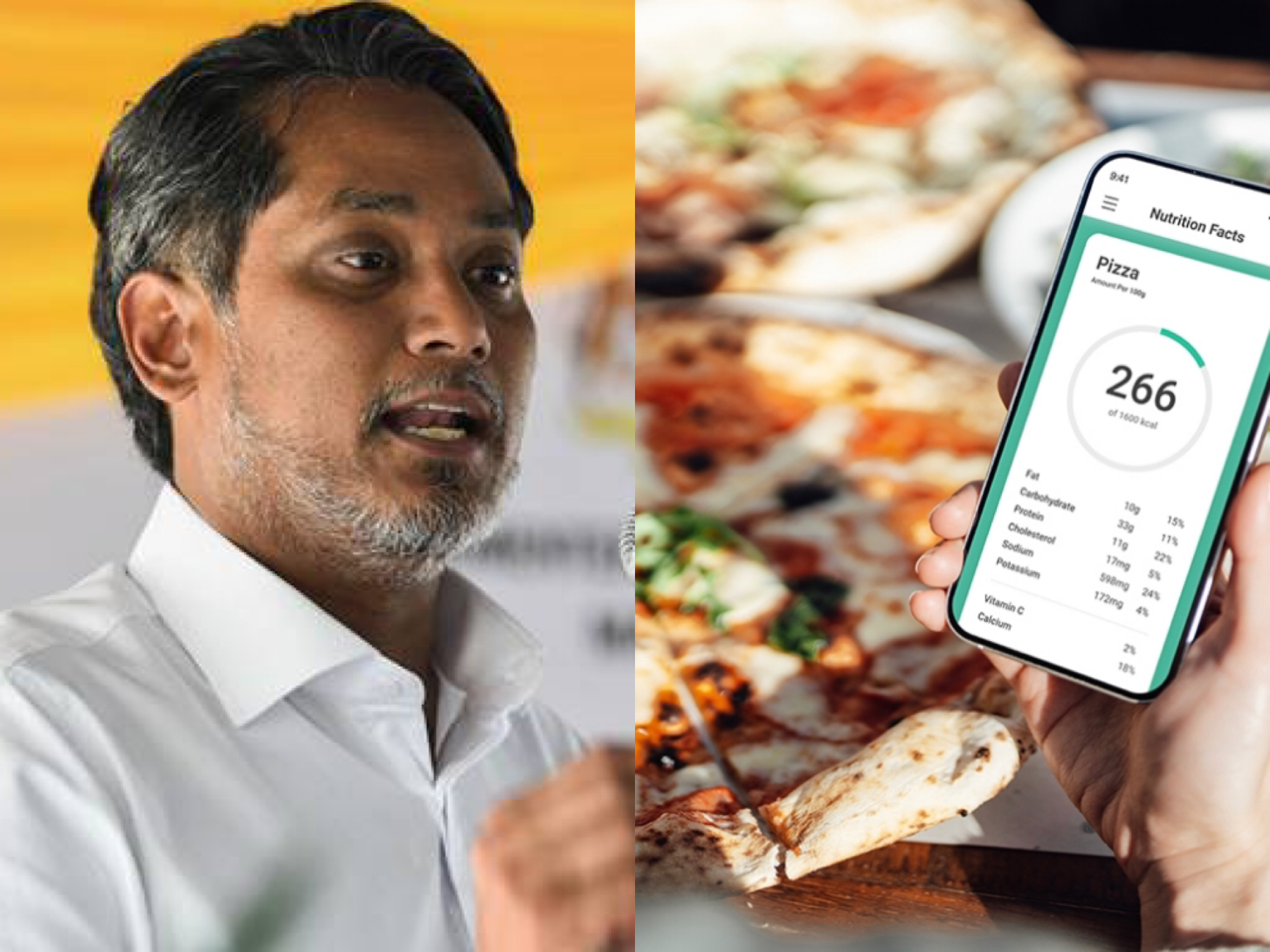MOH Introduces Food Calorie Labelling In Restaurant Menus Next Year To Tackle Rising Obesity Rates
 Thirsty for JUICE content? Quench your cravings on our Instagram, TikTok and WhatsApp
Thirsty for JUICE content? Quench your cravings on our Instagram, TikTok and WhatsApp

Weight can be a sensitive topic for anyone, but not when it comes to a question of health. In the 2019 National Health and Morbidity Survey, 50.1% of our adult population were reported to be overweight (30.4%) or obese (19.7%).
Two days ago, Health Minister Khairy Jamaluddin announced that the MOH will implement a food calorie labelling pilot project in restaurants and cafeterias early next year to assess the feasibility of a menu labelling policy in Malaysia.

“Currently, we are in the planning stage to identify cafeterias and restaurants that want to participate in this pilot project that will be implemented for at least six months to a year.
“MOH will prepare the information (calorie count) so that they (entrepreneurs) do not need to spend money on consultants to label their food menus. We just ask for cooperation from the restaurant management so that when the calorie information is ready, it can be placed on the menu in their food outlets,” he said.
While there is no telling if this is a permanent policy when it comes to menu labelling in the future, Khairy said that the initiative was created to observe community behaviour.

In theory it makes sense, but how many of us actually check the nutritional values of our groceries before we put them in our carts? Only time will tell.
“After this, MOH in an evidence-based way would examine the data, in terms of the success of the pilot project, before we make a decision regarding the mandatory labelling policy because there are countries that have made it mandatory and we will see the effects.”
On the other hand, this raises concerns for how calorie counting can be a trigger for those suffering with eating disorders. Calorie counting could lead to obsessive thoughts over weight loss and/or gain.

Counting calories don’t work in the long run. It may work in the short-term to lose weight and feel in control, but it’s no way to live.
Here’s why – calories are not an indicator of good health or nutritious food. They don’t tell you the quality of the food or the content of what you’re consuming.
“Although we recognise the importance of reducing obesity, research shows that anti-obesity campaigns that focus on weight instead of health are counter-productive, while the number of calories consumed is not a reliable indicator of health,” says an expert from Beat UK.
To count calories is to be in a battle with ourselves. It is a soulless numbers game where you either win or lose based on your ability to conform. It is immediately restrictive.
This is a law of human nature that at the very moment you restrict, you create a mental barrier to want what you can’t have.
But hey, maybe that’s just me. At the end of the day obesity is a real issue that should be mitigated, but perhaps there are better ways to do so.


 Get Audio+
Get Audio+ Hot FM
Hot FM Kool 101
Kool 101 Eight FM
Eight FM Fly FM
Fly FM Molek FM
Molek FM

